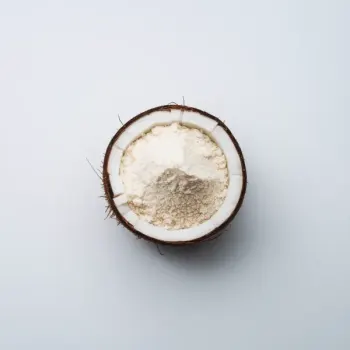


Bulk
Some stores offer coconut flour in bulk bins, allowing customers to purchase the exact amount they need.
Bagged
Coconut flour is most commonly found in a finely ground, powdery form, packaged in bags. It is made from the dried and ground flesh of coconuts.




bulk coconut flour: Anthony's Goods
bagged coconut flour: Bob's Red Mill

Baking: Coconut flour is most commonly used in baking, where it can be incorporated into recipes for breads, muffins, pancakes, and other baked goods. It's essential to adjust the ratio of wet to dry ingredients to accommodate the flour's absorbency.
Frying: Coconut flour can be used as a coating for fried foods. It provides a light, crispy texture when used as a breading for meats or vegetables. However, it can burn more quickly than other flours, so it's important to fry at a moderate temperature.
Thickening: This flour can be used as a thickener in soups, sauces, and gravies. Because it's highly absorbent, start with a small amount and gradually add more until the desired thickness is achieved.













